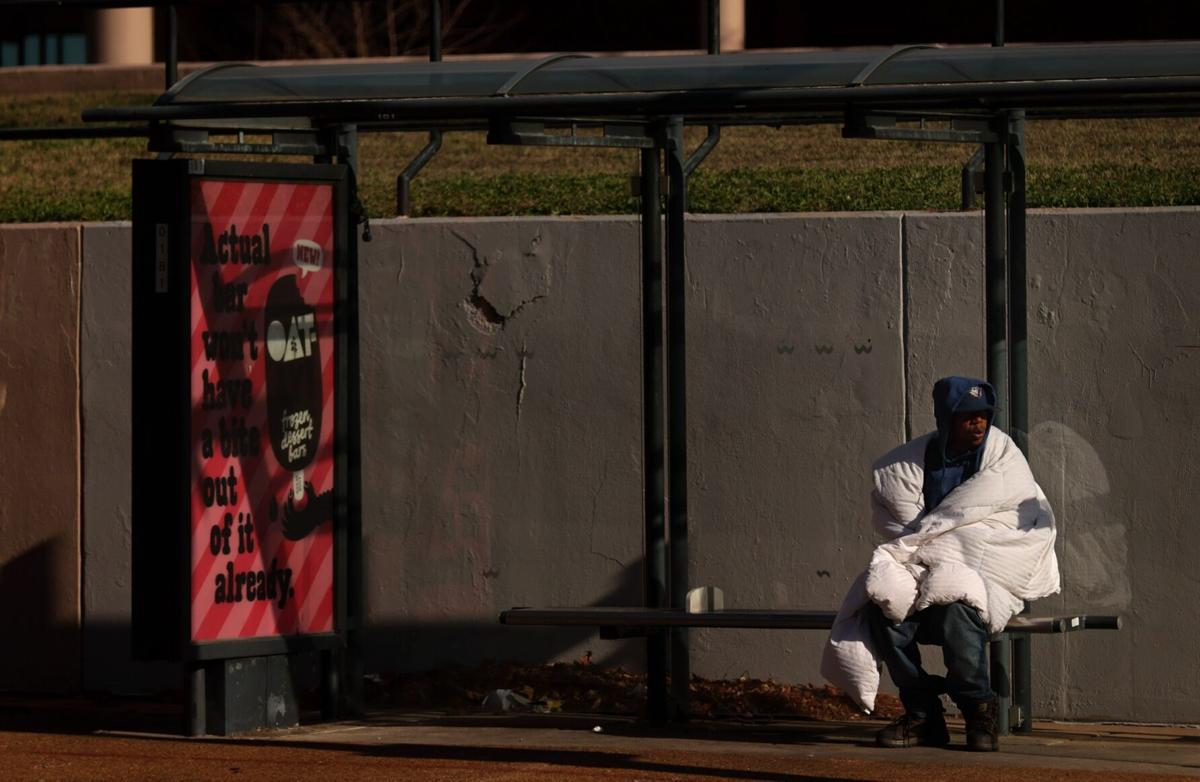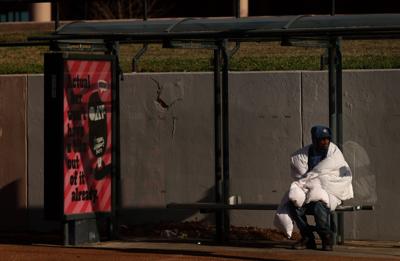ST. LOUIS ŌĆö The story is the same nearly every year as fall turns to winter.
Alderman Christine Ingrassia has seen it happen over and over again. A cold snap hits. The agencies that provide food, clothing and shelter to people who donŌĆÖt have roofs over their heads suggest the city isnŌĆÖt working fast enough to ease the problem of homelessness.
ŌĆ£ItŌĆÖs been the same for me under three different (mayoral) administrations,ŌĆØ says Ingrassia, a member of the Continuum of Care board, an umbrella organization for nonprofits that provide services for the homeless.
This year, the warming buses and walk-up shelters have been slow to get operating as temperatures drop. Two years ago, nonprofit leaders were trying to get the administration of former Mayor Lyda Krewson to move faster in protecting homeless people during the pandemic.
People are also reading…
ŌĆ£We canŌĆÖt make them do anything,ŌĆØ Shanna Nieweg, executive director of the Horizon Housing nonprofit, said at the time. ŌĆ£We can just keep asking and asking and asking.ŌĆØ
Nieweg then was chairperson of the Continuum of Care. Now sheŌĆÖs joined a new nonprofit board ŌĆö House Everyone STL ŌĆö that hopes to break through the annual delay in connecting money to services.
Following a successful model in Dallas, nonprofit and philanthropic leaders want House Everyone STL to take over from the city as the conduit for federal money to provide homeless services. The nascent nonprofit, with an initial burst of private funding, was created by Continuum of Care for that specific purpose.
House Everyone STL has already become the support agency that manages and staffs the Continuum of Care, something the organization never had.
But replacing the city as the lead applicant for millions of dollars in Housing and Urban Development funding would be a huge step. And it will face pushback from the administration of Mayor Tishaura O. Jones.
Indeed, the city intends to hold onto the purse strings controlling the federal money.
In a written statement, Yusef Scoggin, director of the Department of Human Services, said the city is best positioned to manage homeless services because it can provide ŌĆ£accountable administrative oversight and a lens on racially equitable housing practices.ŌĆØ He also said Human Services can work with other city departments to improve the stock of affordable housing.
The conflict between providers and the city doesnŌĆÖt have to exist, says Peter Miller, if leaders come together and find better ways to deliver services. The 51║┌┴Ž native is president and CEO of The Meadows Foundation, which led the charge to change how Dallas tackles homelessness.
The problem in most cities is quite similar, Miller says: ŌĆ£Homeless shelters were never designed to be a solution.ŌĆØ
But much of the infrastructure around homelessness, including many of the biggest nonprofits, are built around shelters or the latest trend in transitional housing, like tiny homes. The best solution is permanent housing, most advocates believe, and to provide services ŌĆö mental health, drug and alcohol treatment, job training ŌĆö once people obtain housing.
Those concepts arenŌĆÖt new in 51║┌┴Ž ŌĆö nor were they in Dallas. But a divided system with multiple nonprofits often competing for money, and a city government that isnŌĆÖt always the most efficient fund distributor, is designed to fail, Miller believes.
ŌĆ£Solving homelessness takes a village and all the village has to offer,ŌĆØ he says. ŌĆ£Neither the city nor the nonprofit community can do this alone.ŌĆØ
Ingrassia supports a potential new leader for the cityŌĆÖs request for federal funding. She believes the time is right for ŌĆ£some soul searchingŌĆØ to determine if the city ŌĆ£is getting the job done.ŌĆØ
Last month, Miller came back to 51║┌┴Ž along with Mandy Chapman Semple. She helped design the new model in Dallas, where a nonprofit called Housing Forward is serving as the lead agency for homeless services. That model is what House Everyone STL hopes to emulate. Miller hopes 51║┌┴Ž hires Semple to work with local leaders to redesign the system of homeless services.
ŌĆ£Other cities that have done this have had outrageous success,ŌĆØ says Suvir Dhar, a 51║┌┴Ž attorney who is on the board of the new nonprofit. ŌĆ£WeŌĆÖre going to follow the Dallas model and adapt it to 51║┌┴Ž.ŌĆØ
To get there, the nonprofit and its supporters have to convince the Jones administration that the city will do more to battle homelessness if it serves as a partner.
That wonŌĆÖt be an easy sell. No politician wants to give up control over millions of dollars and the staffing that goes with it. Then again, no mayor enjoys the yearly headache of having business and nonprofit leaders complain that the city isnŌĆÖt ready to get people off the streets.
Dhar believes the nonprofit model gives the city political cover while designing a more efficient way to get people into housing more quickly.
ŌĆ£We have a real opportunity to help the people who are living on the streets and are homeless right now,ŌĆØ he says. ŌĆ£We will all benefit from this.ŌĆØ















